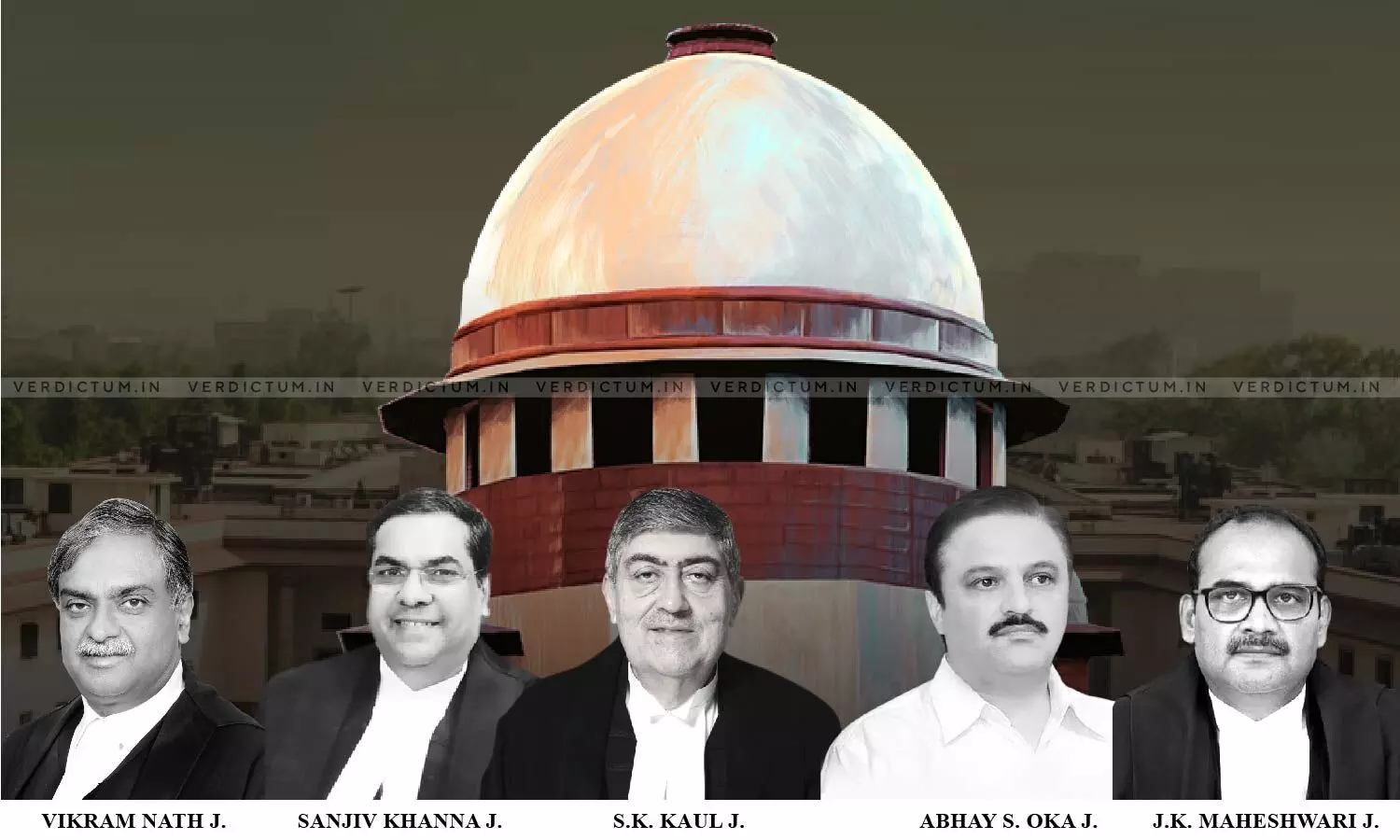
Bhopal Gas Tragedy: Claim For ‘Top Up’ Has No Foundations In Any Known Legal Principle- SC While Dismissing Centre’s Curative Petition
 |
|The Supreme Court has dismissed the curative petition filed by the Centre regarding compensation to the victims of the Bhopal Gas Tragedy case saying that its claim for a ‘top up’ has no foundations in any known legal principle.
The Centre had sought additional funds from Union Carbide Corporation’s (UCC) successor firms to grant higher compensation to the victims of the said 1984 tragedy.
The Constitution Bench comprising Justice Sanjay Kishan Kaul, Justice Sanjiv Khanna, Justice Abhay S. Oka, Justice Vikram Nath, and Justice J.K. Maheshwari observed, “Union of India’s claim for a ‘top up’ has no foundations in any known legal principle. Either a settlement is valid or it is to be set aside in cases where it is vitiated by fraud. No such fraud has been pleaded by the Union, and their only contention relates to a number of victims, injuries, and costs that were not contemplated at the time the settlement was effected.”
The Bench said that it is dissatisfied with the Union being unable to furnish any rationale for raking up this issue more than two decades after the incident.
“Even assuming that the figures of affected persons turned out to be larger than contemplated earlier, an excess amount of funds remained available to satisfy such claims”, noted the Court.
Advocates Shreekant Neelappa Terdal and Karuna Nundy appeared for the petitioners while Senior Advocates Harish Salve, Sanjay Parekh, Ravindra Shrivastava, Sidharth Luthra, and AAG Saurabh Mishra appeared for the respondents.
Facts –
A curative petition was filed by the Centre in the year 2010 seeking an additional amount of Rs. 7,844 crores from UCC’s successor firms to extend higher compensation to the victims of the 1984 Bhopal gas tragedy that killed over 3,000 people and caused environmental damage. The Centre demanded additional Rs. 7,844 crores from the UCC's successor firms over and above the settlement amount of USD 470 million (Rs. 715 crores) received from the American company as part of the settlement in the year 1989.
The UCC gave a compensation of USD 470 million (Rs. 715 crores) to the Union Government at the time of settlement in 1989 after the toxic methyl isocyanate gas leaked from the Union Carbide factory on the intervening night of December 2 and 3, 1984 resulting in the death of 3,000 people and affected more than 1.02 lakh persons. A Bhopal Court in 2010 sentenced seven executives of Union Carbide India Limited (UCIL) to two years imprisonment.
The Supreme Court after hearing the contentions of the counsel asserted, “There is no dispute that the compensation was deposited within time. … Subsequently, certain endeavours were made on behalf of victims from time to time to open up the settlement. However, these were opposed by the Union of India and were not successful.”
The Court noted that while there is an increase in the amount required for compensation for death and temporary disability, there is also a decrease in the amounts required for cases of permanent disability and utmost severe cases, as also for loss of property and loss of life.
“Since this Court’s review jurisdiction itself is so restrictive, we find it difficult to accept that this Court can devise a curative jurisdiction that is expansive in character. … We understand that such a strategy was adopted as the Union of India’s endeavour is not to set aside the settlement but merely to ‘top up’ the settlement amount. … We have great hesitation in allowing such a prayer and granting such sui generis relief through the means of curative petitions”, the Court further noted.
The Court said that while it sympathizes with the victims of the awful tragedy, it is unable to disregard settled principles of law, particularly at the curative stage.
“Mere sympathy for the sufferers does not enable us to devise a panacea; more so while looking into the nature of dispute, and the multifarious occasions on which this Court has applied its mind to the settlement. … We are cognizant that no amount is truly adequate when such incidents occur. Nevertheless, a monetary determination had to take place, and the only compensatory mechanism known to common law is that of a lump-sum settlement”, observed the Court.
The Court asserted that Union filed the curative petitions seeking to reopen the settlement after opposing attempts by private parties to do so.
“The scenario arising in case of a shortage was clearly outlined in the review judgment, i.e. the responsibility was placed on the Union of India, being a welfare State to make good the deficiency and to take out the relevant insurance policies. Surprisingly, we are informed that no such insurance policy was taken out. This is gross negligence on part of the Union of India and is a breach of the directions made in the review judgment. The Union cannot be negligent on this aspect and then seek a prayer from this Court to fix such liability on UCC”, the Court also asserted.
The Court directed that a sum of Rs. 50 crore lying with the RBI shall be utilised by the Union of India to satisfy pending claims, if any, in accordance with the Bhopal Gas Leak Disaster (Processing of Claims) Act, 1985 and the Scheme framed thereunder.
The Court, therefore, concluded, “Now the curative petitions have been filed by the Union of India having not filed review petitions. Private parties who are here before us seek to ride on the coattails of the Union. This is not something we can countenance.”
Accordingly, the Apex Court dismissed the curative petition.
Cause Title- Union of India & Ors. v. M/s. Union Carbide Corporation & Ors.
Click here to read/download the Judgment